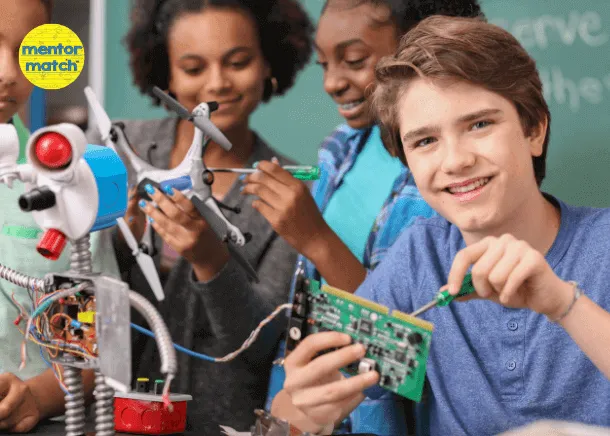
77.32% of parents see better grades in 3 months!
Engineers are behind the innovations that keep our world functioning and our systems constantly improving. They’re professionals that use math and science to solve technical problems and make sure the things they create are both affordable and safe. They often work closely with management to understand what's needed and with government regulations to follow the rules. They are also really involved in testing and improving products to make them work better for customers.
In our last blog, we talked about how engineering is a popular career choice right now, especially for K12 kids at top schools. In this blog, we take the guide to engineering as a study and a career to the next level by understanding jobs in 7 different types of fields!
Computer Science: In today's digital age, computer science engineers play a vital role in designing and developing software and hardware systems. They create applications, websites, and other digital tools that power our everyday lives. With the rapid advancement of technology, there's always something new to learn and innovate in this field.
Petroleum Jobs: Petroleum engineers work in the oil and gas industry, where they are responsible for discovering, extracting, and managing oil and gas reserves. They use advanced techniques to assess the potential of underground deposits and develop strategies for efficient extraction while considering environmental and safety concerns.
Artificial Intelligence and Machine Learning (AI/ML): AI and ML engineers are at the forefront of innovation, working on systems that can learn and adapt without explicit programming. They develop algorithms and models that power everything from recommendation systems to autonomous vehicles, revolutionizing industries like healthcare, finance, and transportation.
Aerospace: Aerospace engineers design and build aircraft, spacecraft, satellites, and missiles. They work on a wide range of projects, from improving fuel efficiency in commercial jets to developing cutting-edge space exploration technologies. This field offers exciting opportunities for those fascinated by the wonders of flight and space exploration.
Nuclear Energy: Nuclear engineers work in power generation, research, and other applications of nuclear energy. They design and operate nuclear reactors, ensuring safety and efficiency while managing complex systems that produce electricity or conduct research into new nuclear technologies.
Mechanical Engineering: Mechanical engineers work across various industries, designing and developing mechanical systems and devices. From designing automotive engines to creating renewable energy solutions, mechanical engineers are involved in projects that shape the world around us.
Electronics & Communication Engineering: Electronics and communication engineers focus on designing and improving electronic circuits and communication systems. They work on projects ranging from developing new smartphone technologies to designing cutting-edge telecommunications networks.
Each of these engineering fields offers unique challenges and opportunities for growth. You can encourage your child to explore their interests further through internships, projects, and conversations with professionals in the field. This can help them understand what they’re getting into, as well as give them networking and work opportunities that will help them improve their college applications.
Engineering prep starts right from K12
You can (and should!) start your child's engineering journey early, even during their K12 years. Many students discover their passion for engineering while still in school, and personalized tutoring can give them the extra push they need in the right direction. Online tutoring services offer valuable after-school support in K12 Math and Science, precisely what budding engineers require!
For instance, the most popular online tutoring platforms provide tailored assistance for students, right from elementary grades to AP classes; with study plans designed to suit each learner’s unique needs. What sets this type of online K12 personalized tutoring apart is its focus on more than just academics and grades—it nurtures critical thinking, creativity, and problem-solving skills essential for engineering.
When seeking the best online course help platforms in the US, consider Mentor Match as our top recommendation! Their personalized online tutors specialize in making STEM subjects engaging and helping K12 students target their areas of improvement. Other reputable options for online tutoring services in the US include Khan Academy and Varsity Tutors.
[engineering careers US, engineering jobs USA, engineering prep US, STEM education, K12 education, online tutoring, career exploration K12 US, online math tutors US, online science tutors US]



.png)
.webp)
.webp)